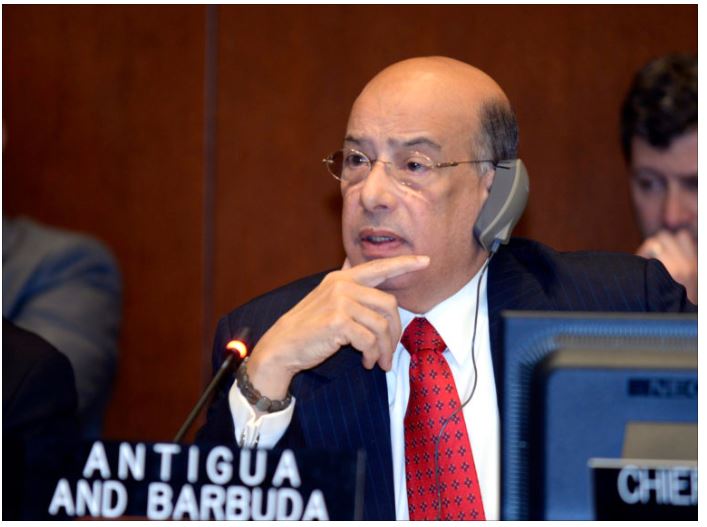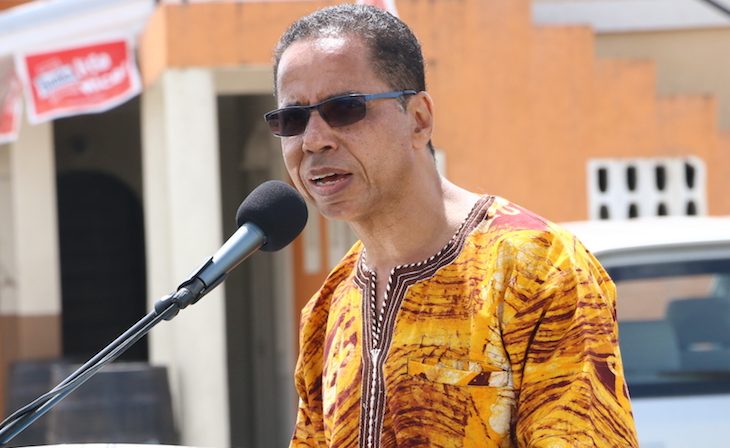By Rebecca Theodore
Goal 2 of the United Nations Sustainable Development Goals seeks sustainable solutions to end hunger in all its form and to achieve food security. The aim is to ensure that everyone everywhere have enough good-quality food to lead a healthy life. However, achieving United Nations sustainable development Goal # 2 requires a better access to food, and the promotion of sustainable agriculture in the less developed states of the Caribbean if the 2030 target is to be achieved.
And it is here, that, the Caribbean Israel coalition intertwines food security to sustainable development in the Caribbean.
Even as climate change and serious weather conditions are continuing to impact crop yields, livestock, fish stocks and farmer’s income in the Caribbean, the Caribbean Israel coalition aims to tackle food security inadequacies by supporting more efficient agricultural systems using innovative Israel technology.
According to a Food and Agriculture Organization of the United Nations (FAO) report, “almost all CARICOM countries import more than 80 per cent of the food they consume. CARICOM countries currently import in excess of US $4 billion in food annually, and food imports are projected to increase to US$8-10 billion by 2020.”
More significantly, World Bank and the International Labor Organization reports further confirm, that, lack of food security in the smaller developing states of the Caribbean causes economic losses of between 2% and 3% of GDP and 10% of personal income.
But if the agricultural market contributes very little to GDP in the region because Caribbean countries import more than they export, then, this means that large food import bill is an obstacle to the United Nations sustainable development goal #2 of ending hunger in all its form and to the Caribbean’s rising food insecurity challenges. It also means that there will be a decline in intraregional agricultural trade, a reduction in foreign exchange earnings due to the collapse of many export agricultural crops, persistent poverty and hunger and underdeveloped domestic food systems in the Caribbean.
Therefore, agriculture is crucial for Caribbean countries to achieve food security as they face climate change and other challenges.
Yet, tackling the challenges of food security while at the same time, maintaining ecosystem services, reducing greenhouse gas emissions to limit and adapt to climate change, and to improve livelihoods of poor people, in the Caribbean requires a systematic approach.
To do this, it is essential that the Caribbean Israel coalition bolster the productive capacity of agriculture and provide training in agricultural techniques to the people of the Caribbean, while, at the same time, maintaining the genetic diversity of seeds and time saving machinery. The Caribbean Israel coalition is also seeking to boost sustainable agricultural productions and introducing time saving techniques to Caribbean farmers using Israeli technology.
Elaborating further, the Caribbean Israel coalition seeks to support farmers in the Caribbean to diversify livelihoods and reduce vulnerability and identify strategies for building resilience to shocks through adaptation to climate change. The Caribbean Israel Coalition is linking sustainable development efforts in water sanitation, increasing water management to improve harvests, agriculture, solar farming, housing, and cybersecurity to build sustainability in the Caribbean.
It must be noted that food insecurity, in the Caribbean is also essential for short-term and long-term economic growth. Strategies for food security in the Caribbean cannot be unilateral. Food security in the Caribbean requires a combination of coordinated actions across a number of areas including agriculture, water sanitation, and solar farming. There must be a synchronization of the governance of food security, sustainability and climate change mitigation in the Caribbean. There must be a sound ecosystem that strengthen capacity for adaptation to climate change. In the face of a changing demography caused by the havoc of climate change, the Caribbean Israel Coalition is providing the technological Israeli systems and knowledge to implement resilient agricultural practices to ensure sustainable food production in the Caribbean.
In essence, food security is a basic human right. The Caribbean Israel Coalition aims to formulate an effective and innovative strategic model to make food security a human right in the Caribbean.
(Rebecca Theodore is the Director of North American Affairs for the Caribbean Israel Coalition – a non profit organization that partners with Israeli expertise, technology and investment to bring sustainable development to the Caribbean region)




